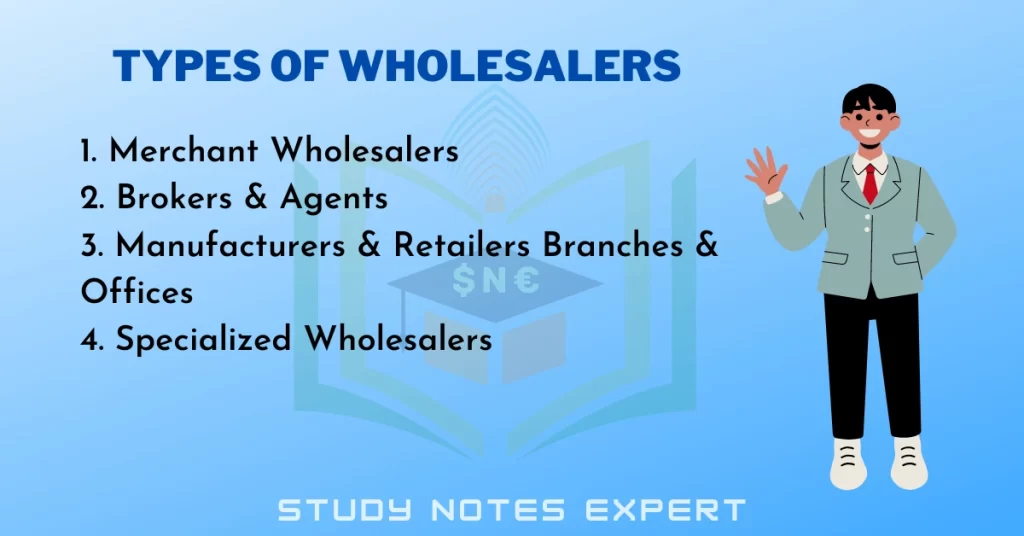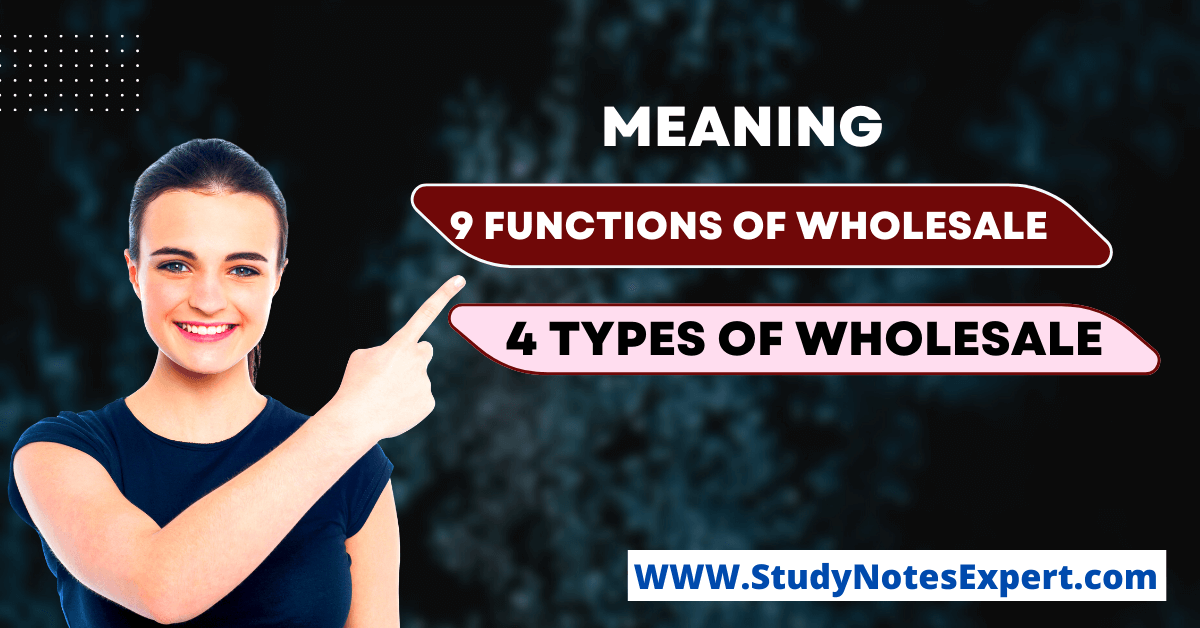Meaning of Wholesaler
Wholesaling includes all the activities in selling goods and services to those who buy for resale or business use. It excludes manufacturers and farmers because they are primarily engaged in production and retailers. Wholesalers pay much less interest to promotion, environment, and vicinity due to the fact they address commercial enterprise customers. Wholesalers handle a small number of items and varieties. Here, you will know the functions and types of wholesale.
They specialize in the product in which they deal. Wholesalers are the first outlet in the chain of distribution. They purchase goods from manufacturers or producers. These deals are in large quantities or on a large scale. Wholesalers sell the products at a low margin of profit. They do not provide after-sale service.
Functions of Wholesalers

In General, the main functions of wholesalers are.
1. Selling and Promoting
This is one of the main functions of wholesalers’. It helps sales forces to manufacturers reach many small business customers at a relatively low cost. They have more contacts, and buyers often trust them more than they trust distant manufacturers.
2. Buying and Assortment Building
Wholesalers can select items and build the assortment their customers need, saving them considerable work.
3. Bulk Breaking
Wholesalers achieve savings for their customers by buying large carloads lots and breaking the bulk into smaller units.
4. Warehousing
The main functions of wholesalers are to hold inventories, thereby reducing inventory costs and risks to suppliers and customers.
5. Transportation
Wholesalers can often provide quick delivery because they are closer to buyers.
6. Financing
Wholesalers finance customers by granting credit. Moreover, they finance suppliers by ordering early, and paying bills on time is one of the functions of wholesalers.
7. Risk Bearing
Wholesalers absorb some risk by taking title and bearing the cost of theft, damage, spoilage, and obsolescence.
8. Market Information
Wholesalers’ supply Information to suppliers is also the functions of wholesalers. Also, customers get information regarding competitors’ activities, new products, price development, etc.
9. Management Services and Counselling
Wholesalers often help retailers improve their operations by training sales clerks and helping with store layouts. Also, displaying and setting up an accounting and Inventory control system is one of the functions of wholesalers. They may help industrial customers by offering training and technical services. It shows the role of wholesaler in distribution channel.
Different Types of Wholesale

In this section, we discuss the types of wholesale. The classification of wholesalers is as follows:
1. Merchant Wholesalers
Independently owned businesses that take title to the merchandise they handle. They are full-service and limited-service jobbers and distributors are types of wholesalers. There are two types of merchant wholesalers which are as.
- Full-Services Wholesalers
Carry stock, maintain salesforce, offer credit, make deliveries, and provide management assistance. Wholesalers merchants sell primarily to retailers. Some carry several merchandise lines, some carry one or two lines, and others carry only one part of the line. Industrial distributors sell to manufacturers and provide credit and delivery services.
- Limited- Service Wholesalers
Cash & carry wholesalers sell a limited line of fast-moving goods to small retailers for cash. It includes different types of wholesalers.
Truck wholesalers sell & deliver a limited line of semi-perishable goods to supermarkets, grocery stores, hospitals, restaurants, and hotels.
Drop Shippers serve bulk Industries such as coal, timber and heavy equipment. They assume title and risk from when an order is accepted for delivery.
Rack Jobbers save grocery retailers on non-food items. They retain title to goods and bills retailers only for goods sold to the end of the year.
Producers Cooperatives assemble farm produce to sell in the local markets.
Mail-order wholesalers send catalogues to retail, industrial, and institutional customers. Orders are filled and sent by mail, rail, plane or truck.
2. Brokers & Agents
They facilitate buying and selling on a commission of 2% to 6% of the selling price. They perform limited functions; generally specialise by product line or customer type. It includes two types of wholesalers.
- Brokers
Brokers bring buyers and sellers together & assist in negotiation. They are paid by the party hiring them—for example, Food brokers, Real estate brokers, Insurance brokers etc.
- Agents
Agents represent buyers or sellers permanently.
Selling agents have contractual authority to sell a manufacturer’s output.
Purchasing agents make purchases for buyers and often receive, inspect, warehouse and ship merchandise.
Commission merchants take physical possession of the product and negotiate sales.
3. Manufacturers & Retailers Branches & Offices
Wholesaling operations are conducted by sellers or buyers rather than through Independent wholesalers. Although, it is one of the types of wholesalers. Separate branches & offices are dedicated to sales or purchasing. Many retailers set up purchasing offices in major marketing centers.
4. Specialized Wholesalers
Agricultural Assembler, petroleum bulk plants and terminals, & auction companies to dealers and other businesses.

